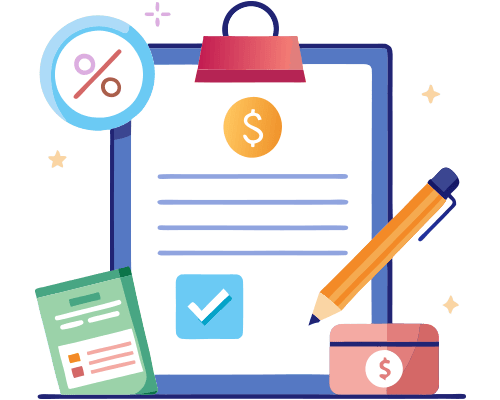Thinking about an FHA loan? Interest rates play a huge role in how affordable your monthly payments will be.
Discover what affects FHA loan rates, how they differ from conventional rates, and how you can secure the best possible rate for your home loan.
Verify Your FHA Loan Eligibility
FHA loans typically offer lower interest rates than conventional loans because they’re backed by the government, which reduces risk for lenders.
Understanding these rates can help you make smarter financial decisions.
FHA loans are insured by the Federal Housing Administration.
Lower risk for lenders means better interest rates for borrowers.
Rates remain competitive over time, making FHA loans attractive for first-time buyers.
Your FHA loan interest rate is influenced by several key factors:
Credit Score: Better scores can help you secure lower rates. Aim for at least 580, but scores above 620 typically yield better rates.
Down Payment: A larger down payment can lower your rate. FHA requires as little as 3.5%, but offering more can be beneficial.
Debt-to-Income Ratio (DTI): Lower DTI ratios (below 43%) often qualify for better rates because you're considered less risky.
Loan Amount & Terms: Shorter-term loans typically have lower rates compared to longer terms.
FHA loans come in two main varieties—fixed and adjustable rate mortgages (ARMs):
Interest stays consistent for the loan duration, ideal if you prefer stable monthly payments.
Offer lower initial rates that fluctuate over time. These can benefit homeowners planning to move or refinance before the rate adjusts.
To ensure you're getting the best possible rate, follow these simple strategies:
Improve Your Credit Score: Pay debts on time and keep balances low.
Save a Larger Down Payment: Even a small increase can significantly improve your rate.
Reduce Debt-to-Income Ratio: Pay off or consolidate debt to improve your financial profile.
Shop Multiple Lenders: Always compare multiple lender offers to find your ideal rate.
Yes, FHA rates fluctuate based on market conditions and economic factors, but they typically remain competitive compared to conventional loans.
Yes. Lenders offer rate locks (30-90 days typically), so you know exactly what your interest will be at closing.
Refinancing can help you secure a better rate if market conditions improve or your financial profile strengthens.
No. Rates vary between lenders, making it crucial to shop around.
Trusted Experts: Decades of combined mortgage experience, specifically with FHA loans.
Personalized Service: We help guide you step-by-step to find the best FHA loan rate.
No Pressure, Just Answers: Clear, helpful advice without sales tactics.
Contact us today and take the next step towards securing an affordable FHA loan rate tailored specifically for your financial goals.